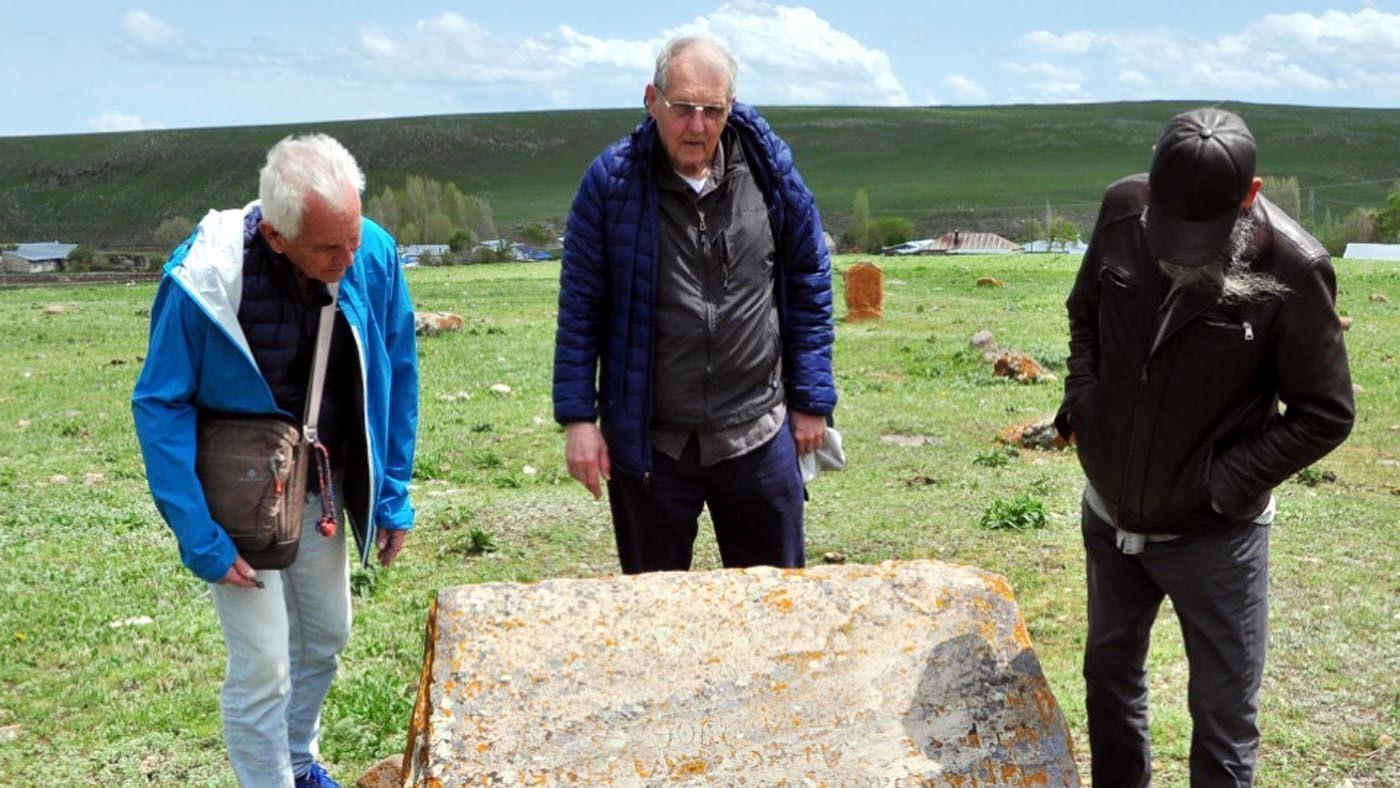Molokans visit eastern Türkiye to explore ancestral roots
KARS

Three descendants of Molokan families exiled to Anatolia during the reign of Tsarist Russia have traveled from the United States and Australia to the Turkish eastern province of Kars, aiming to reconnect with their ancestral homeland and establish links with Molokan communities around the world.
Andrei Conovaloff, a Molokan historian based in the United States, was joined by Vasili Kobzev and Jerry Bogdanoff on a visit to the province, where their ancestors once lived after being relocated from Russia in the late 19th century.
The trio toured key Molokan heritage sites, including a cemetery and a cultural center, accompanied by Vedat Akçayöz, head of a local culture and arts association.
The Molokans, a Spiritual Christian sect, along with other religious sects such as the Doukhobors, were exiled from Russia after refusing to bear arms in the 1877–1878 Russo-Ottoman War. Many settled in the Caucasus and parts of eastern Anatolia, including the Kars region.
Known for their pacifist beliefs and communal lifestyle, the Molokans maintained their traditions despite years of displacement.
Following waves of migration, many Molokans and Doukhobors left Türkiye by the early 20th century, with large numbers settling in Canada and the United States.
“Our mission is to reestablish contact with our descendants,” the historian Conovaloff said. “We hope to engage Molokan and Doukhobor communities around the world and encourage cultural tourism linked to the shared history.”
The primary objective of the visiting members of the Molokans is to build connections between Molokan communities in the United States, Russia, Azerbaijan, Armenia, and Georgia through a shared online platform, Akçayöz explained.
The Molokans are a peace-loving community who refused to take up arms, he added, highlighting that their legacy is especially meaningful today, when peace is a value the world desperately needs.
He also unveiled the long-term vision of converting the building of the cultural center in the region into a dedicated Molokan museum in a bid to honor the legacy of the community.
















